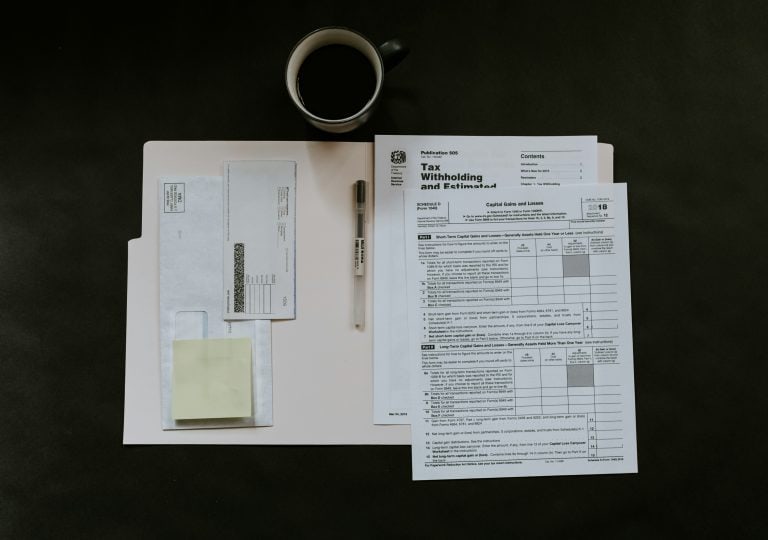A 2020 study found that 54% of Americans dreaded filing their taxes, and that 22% didn’t want to spend their time filing. But unfortunately, you can’t just bury your head in the sand and ignore your tax obligations. If you do, then not only will you be hit with fees, but you’ll still have to file anyway.
If you’re a small business owner, then it may already be challenging to manage your time and energy. It’s still vital to know when and how to file taxes for an LLC though, so be proactive. Read on to find out more, especially if you’re filing business taxes for an LLC for the first time.
How to File Taxes for an LLC
Filing LLC taxes isn’t a completely straightforward process. First, you’ll have to figure out how your LLC is taxed. From there, there are different actions to take to ensure you’ve fulfilled your tax obligations.
In the following sections, we’ll discuss what you need to do, based on your LLC type.
Single-Member LLC
If you’re familiar with having a sole proprietorship, then filing as a single-member LLC should be easy, as it’s the same process.
You’ll file your personal income tax return with IRS Form 1040. You’ll also report your LLC’s income and expenses on Schedule C.
Essentially, if you have a single-member LLC, it’ll be taxed as a disregarded entity. It’s a very straightforward process.
Multi-Member LLC
Multi-member LLCs are considered pass-through entities. All of the company’s income and losses will “pass through” to the members, and they’ll report this amount on their individual tax returns.
This means that you’ll still file Form 1040 in a multi-member LLC, but with Schedule E instead. Do note that all profits must be reported, even if members have left the money invested in the business instead of paying it out.
On top of that, you’ll have to give each LLC member a Schedule K-1 Form 1065. This shows each member’s share of income, deductions, credits, and more. Members will also have to file Form 1065 itself, which shows all income and expenses.
C Corporation
It’s possible to convert an LLC to a C corporation, but you should be aware that it can make taxation more complicated. If you’ve decided on this business entity type, then you can change your LLC through IRS Form 8832.
You’ll have to file corporate income taxes every year by using Form 1120. If shareholders earn any salaries or dividends, they must also report it on their personal tax returns (Schedule B Form 1040). LLC owners report dividends on their 1040s too.
With a C corp, there may be double taxation on the personal level.
S Corporation
There are some tax benefits that come with S corporations, so some LLC owners may choose this tax election by filing IRS Form 2553. In this case, tax filing is a similar process to the one for partnerships.
All members have to fill out a Schedule K-1 Form 1120-S. This shows each shareholder’s share of income, deductions, credits, and more.
In addition, LLC members have to report their share of income on the Schedule E part of Form 1040, which is their personal tax return.
Non-US Residents
It’s common for non-US residents to have LLCs in the US. Thankfully, it’s not too challenging to figure out how to file taxes in this situation.
If the LLC doesn’t have nexus or effectively connected income (ECI), then you should file Form 5472 and Form 1120. The former tells the IRS that the business is more than 25% owned by a foreign owner.
If the LLC does have nexus or ECI, then you’d have tax obligations. So on top of Form 5472 and Form 1120, you’d have to file Form 1040-NR for yourself. You may also have additional forms to file based on the nature of your income.
Do I File My LLC and Personal Taxes Together?
Those who have a single-member LLC can file their LLC and personal taxes together. This is because the LLC is a disregarded entity. Otherwise, multi-member LLCs and corporations need separate tax returns.
The information in this section should also adequately answer the question, “Can I file my LLC and personal taxes separate?”
Do I Have to File Taxes for My LLC if It Has No Income?
The short answer is no, if there’s no LLC activity. This means that in addition to no income, you must have no expenses that you’ve claimed as deductions or credits either. This means that an LLC with no income, but expenses will have to file.
However, if you’ve chosen a C or S corporation tax election for your LLC, then you’ll have to file a corporate tax return. All corporations are required to do so by law, even if there’s zero income and no business activity. The exception is if you’re exempt from taxes under Section 501 of the Internal Revenue Code.
If you own a single-member LLC, you aren’t required to file.
Can I Deduct Business Expenses Without Income?
An LLC with no business activity may not seem like much. But you can still get something out of an inactive LLC.
Single-member LLCs don’t have to file taxes. However, it can be beneficial to file a Schedule C if you had expenses that year. That way, you can get deductions or credits.
How to File Taxes for an LLC With No Income
Filing taxes for an LLC with no income isn’t difficult. Simply determine which tax election your LLC is, then file as you normally would.
For example, let’s say you have a multi-member LLC. Every member will file a Schedule E and K-1 Form 1065.
What Documents Do I Need to File My LLC Taxes?
To ensure that your filing process is smooth, you should gather the necessary documents beforehand.
The first items you’ll need are income documents. Revenue records such as invoices and sales receipts will help show income generated by your LLC. Bank statements showing deposits into your business bank account are beneficial too.
Next, get your expense documents, such as receipts, invoices, credit card statements, and mileage logs.
For your financial statements, have your profit and loss statement and balance sheet. You should also provide tax forms like Form 1065, Schedule C, and Schedule K-1. Have your previous year’s tax returns on hand as well.
If your LLC has employees, you’ll need records of wages, salaries, bonuses, benefits, and payroll taxes. Other information required include W-2 forms, 1099-MISC forms, your employer identification number (EIN), and state tax identification number if applicable.
When Is an LLC Tax Return Due?
There are several answers to this question, depending on what your LLC’s tax election is.
If your LLC is a partnership or S corporation, then your LLC tax return is due on March 15th. If your LLC is a single-member one or C corporation, then your deadline is April 15th.
Know Your Tax Obligations as an LLC Owner
Knowing how to file taxes for an LLC can mean the difference between being compliant and having numerous fines to deal with.
Running a business on your own can already be challenging enough, so don’t add more to your plate. Understand your personal situation, round up the appropriate documents, and work with a tax professional to make sure you aren’t buried in paperwork and stress.
If you want to start an LLC, then sign up with Business Anywhere now. Our services are affordable and efficient.








